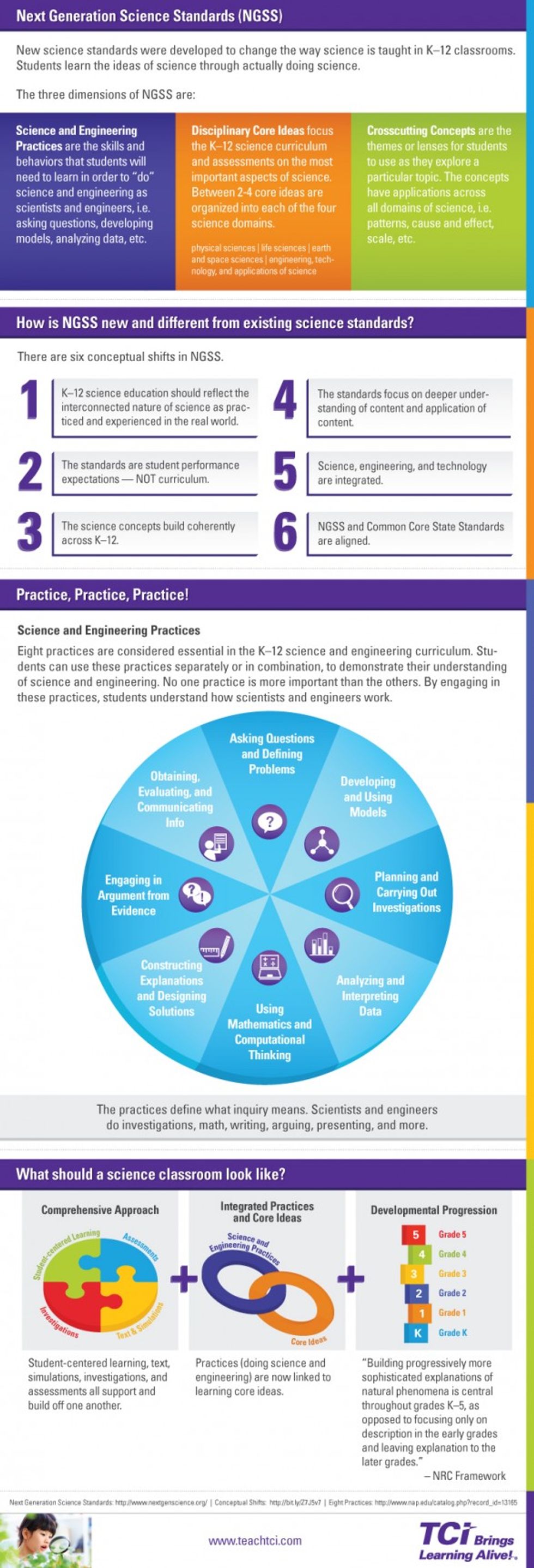
© 2025 Blaze Media LLC. All rights reserved.
A Look Into New Ed. Standards Praised for Putting Science Into Context But Criticized for Teaching Man-Made Global Warming
April 11, 2013
"The standards ...have the power to influence all of the components of the education system."
- The new Next Generation Science Standards seeks make connections between science and other disciplines and update scientific information not found in previous standards.
- It has been nearly two decades since a set of national science standards has been developed.
- The K-12 standards include teaching students core ideas about man-made global climate change, evolution and sustainability as well as topics found in traditional biology, chemistry and physics.
- NGSS is a standard, not curriculum, and is voluntarily adopted by states.
 Science classes like biology would include other real-world applications for the knowledge according to the Next Generation Science Standards. (Image: Shutterstock.com)
Science classes like biology would include other real-world applications for the knowledge according to the Next Generation Science Standards. (Image: Shutterstock.com)
For the past two years, 26 states collaborated to develop a new set of voluntary educational standards for science in schools, updating what some consider horribly out of date previous guidelines from 1996.
"The [Next Generation Science Standards] aim to prepare students to be better decision makers about scientific and technical issues and to apply science to their daily lives," Matt Krehbeil, science education program consultant, of Kansas, said in a statement. "By blending core science knowledge with scientific practices, students are engaged in a more relevant context that deepens their understanding and helps them to build what they need to move forward with their education - whether that's moving on to a four-year college or moving into post-secondary training."
Drafting of the Next Generation Science Standards was coordinated by Achieve, a bipartisan non-profit seeking to help states raise education standards. Achieve also helped developed the Common Core State Standards Initiative. The National Research Council, the National Science Teachers Association and American Association for the Advancement of Science were involved in phases of the standard's development process as well.
The K-12 standards have already been getting buzz from those who believe global warming education was missing from schools for years and "climate deniers" who call it a "victory for progressives and liberals" that "doesn't reflect correct science."
Mark McCaffrey, the programs and policy director with the National Science Teachers Association, told TheBlaze their hope is that the standards aren't "painted as [only] climate change standards" just because climate science and information involving man-made global warming is included.
"[It] cover a wide range of topics," McCaffrey said. "The new standards are designed to provide young people with scientific understanding and skills."
A look at the press release about the standards released earlier this week doesn't even mention climate science being an addition to the standards that was missing from the 1996 recommendations.
Climate science though, MCaffrey said, is one that has "continued to fall through the cracks."
"Because climate change was not included in national science standards, we've lost almost 20 years," he said. "Now we need to have informed citizens."
McCaffrey said if climate change education was included earlier, we would be in a "different situation" instead of "paying the price right now."
When asked about teaching "both sides" of climate change -- teaching that there are those who believe the data does not confirm anthropogenic activity is causing global warming -- McCaffrey said it is a practice that "shows a false balance."
NGSS establishes a set of Disciplinary Core Ideas the framers believe students should know by high school graduation. Some of these ideas will include "societal or personal concerns that require scientific or technological knowledge."
When it comes to climate change and the core idea progression, students learn about weather in younger grades eventually leading up to learning about historical weather patterns and how patterns compose climate. As early as third grade, students would begin learning about how a warming temperature would impact life on Earth.
Once the student is in high school, the NGSS would have them learning about "the role of radiation from the sun and [how] its interactions with the atmosphere, ocean, and land are the foundation for the global climate system." At this age, information about global climate models predicting future changes in climate, "including changes influenced by human behavior and natural factors," would be taught as well.
Students will also learn about human impacts on earth systems. Those in grades K-2 will learn about how human actions affect the environment and how "they can make choices to reduce their impacts." High school students in this category will learn about "sustainability of human societies and [how] the biodiversity that supports them requires responsible management of natural resources, including the development of technologies and regulations."
The core ideas also include everything from human biology, chemistry and physics to environmental science, evolution and information systems.
Watch this promotional video about the standards:
The framework of the standards want these topics to draw connections between the "interdependence of science, engineering and technology" and how they influence society and the natural world.
"The Next Generation of Science Standards promise to help students understand why is it that we have to know science and help them use scientific learning to develop critical thinking skills-which may be applied throughout their lives, no matter the topic," Joseph S. Krajcik, professor of science education in the college of education at Michigan State University and a member of the writing team, said in a statement. "Unlike previous standards, where you have separation of inquiry and ideas that students should know, in the NGSS they are now together."
In the promotional video, Rodger Bybee, executive director of the Center for Science, Mathematics and Engineering Education, said "the standards ...have the power to influence all of the components of the education system."
McCaffrey told TheBlaze their hope with the NGSS is that it will also help uniform science standards among the states. He called science education across the nation a " complete hodgepodge" at the moment.
The standards, which were developed with funding from the Carnegie Corporation, now will be considered by states for adoption. They are completely voluntary and states are not obligated to adopt them.
Check out this infographic about the NGSS:
--
Related:
- Global Warming Groups Claim Big Win in Battle Against 'Climate Denialist' Approach in Schools
- The Latest: Conservatives Are Standing Up Against the Common Core
- If It Weren't So 'Sad' It Would Be 'Hilarious': Educators Continue to Reveal and Blast 'Common Core Standards'
- Will Man-Made Global Warming Become Required Learning For K-12?
Want to leave a tip?
We answer to you. Help keep our content free of advertisers and big tech censorship by leaving a tip today.
Want to join the conversation?
Already a subscriber?
more stories
Sign up for the Blaze newsletter
By signing up, you agree to our Privacy Policy and Terms of Use, and agree to receive content that may sometimes include advertisements. You may opt out at any time.
Related Content
© 2025 Blaze Media LLC. All rights reserved.
Get the stories that matter most delivered directly to your inbox.
By signing up, you agree to our Privacy Policy and Terms of Use, and agree to receive content that may sometimes include advertisements. You may opt out at any time.







